New API endpoint for non-streaming responses:

Enhanced retrieval system for semantic files:
Enhanced retrieval system for semantic files:
tools.retrievaldescription or standard retrieval syntax to be usedExample YAML file with retrieval configuration:
# data/dim_ax_stage_history.sem.yml
retrieval:
include:
- "how many hiring workflow stages does the average applicant go through?"
- "what are the top 3 slowest stages for applicants?"Example agent configuration:
system_instructions: |
You are a data analyst. Your task is to answer questions by writing and executing SQL queries.
ALWAYS execute the SQL query.
# Relevant context
{{ tools.retrieval }}
tools:
- name: retrieval
type: retrieval
src:
- "data/dim_ax_stage_history.sem.yml"
- "extra_workflow_stages_context.yml"With this configuration, the content of the YAML files is automatically injected into the system instructions where {{ tools.retrieval }} appears
Fixed background worker initialization issues with database connections and upgraded to Rust 1.90 (latest version) as well as other dependencies to latest versions for enhanced performance and security
Enhanced file navigation experience:



Enhanced reliability across core platform components:

Improved workspace control, consistency, and navigation:
Enhanced development environment with secure connections:
Comprehensive error monitoring and debugging:
Expanded connectivity options with community contribution:
Special thanks to afoong-8s for contributing to these database authentication improvements
Updated to Rust 1.89 (latest version) and upgraded numerous dependencies for improved security, performance, and compatibility
Real-time and build-time validation for data app within the IDE:
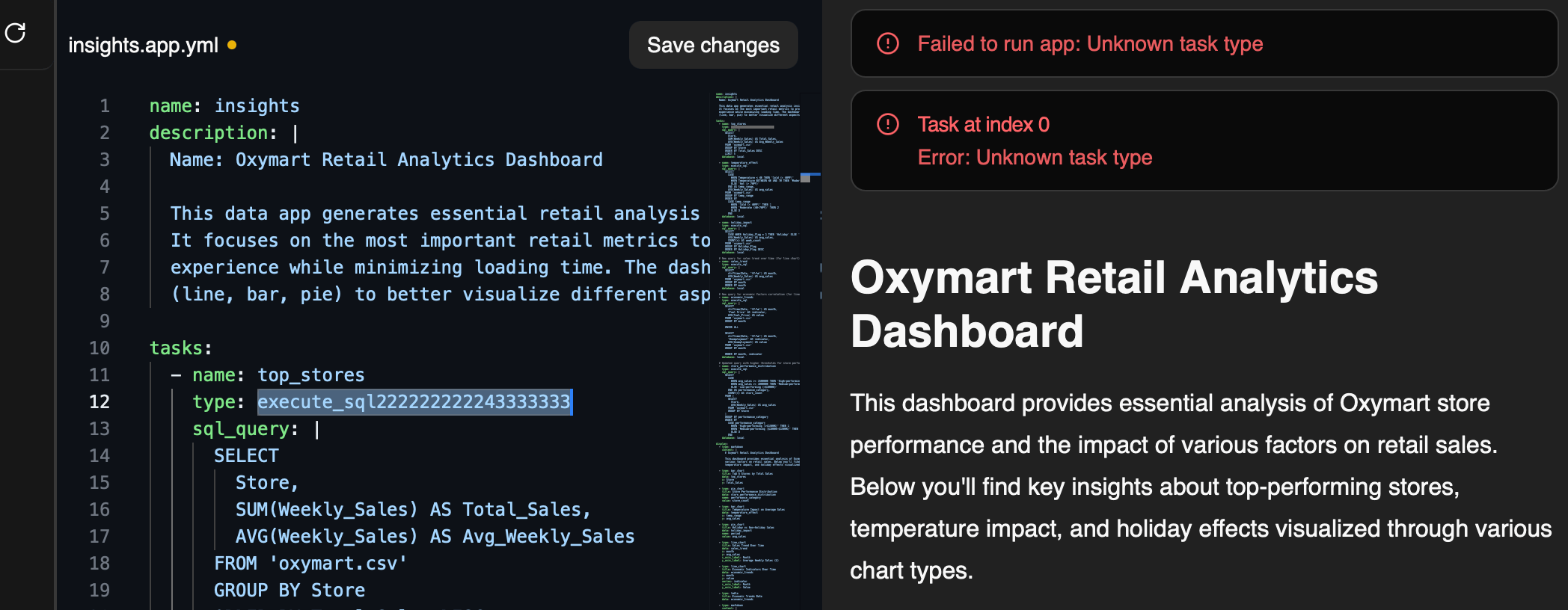
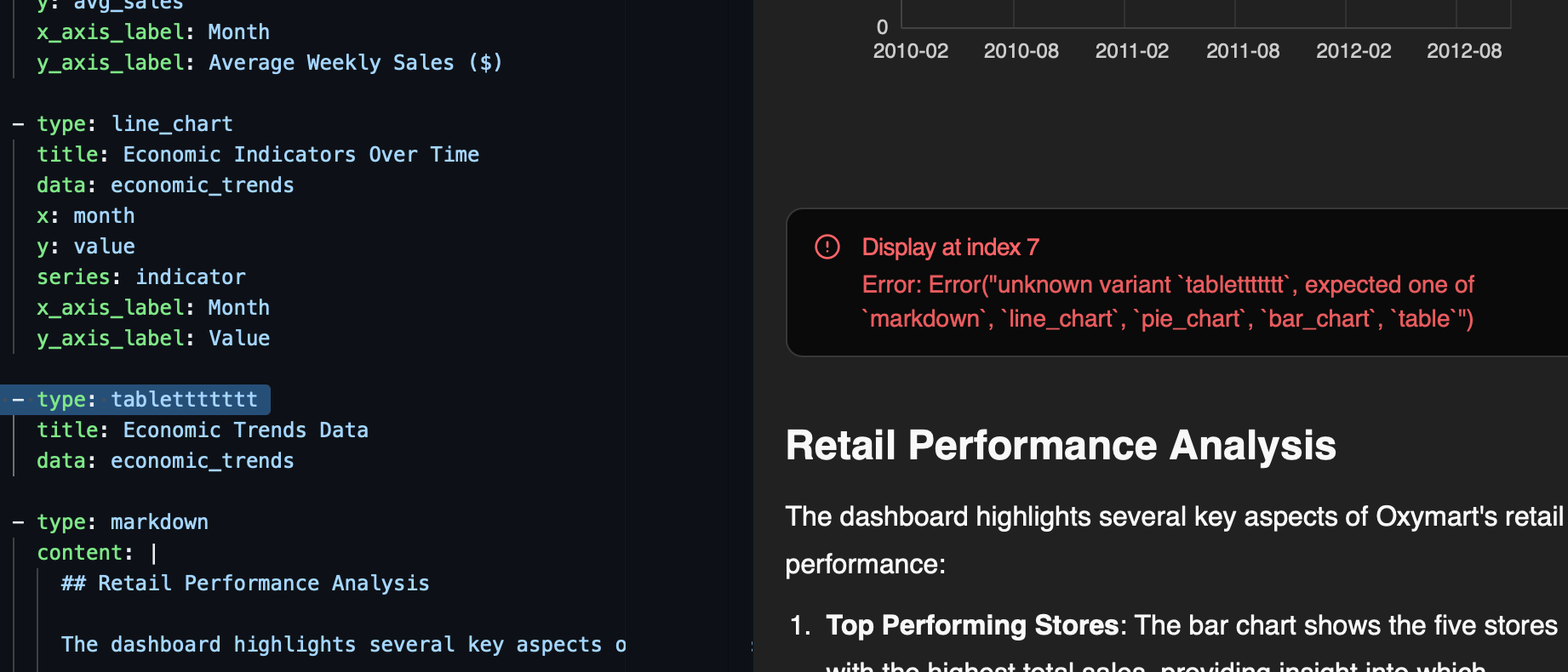
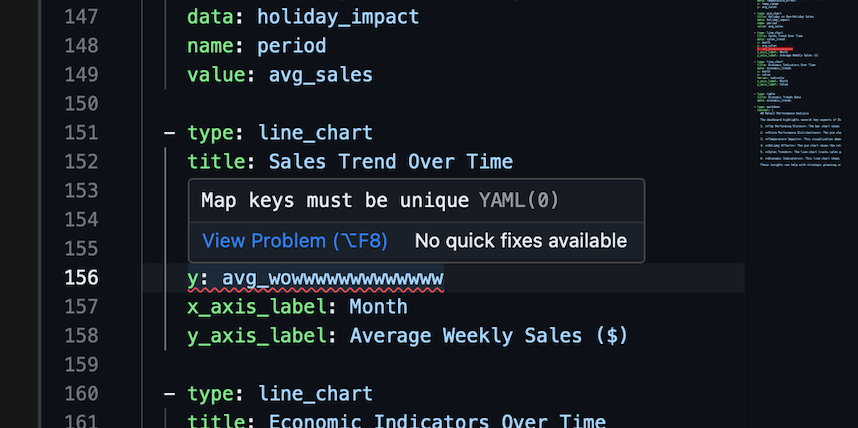
More intelligent workflow and agent selection with advanced semantic matching:
New flexibility for AI model connections:
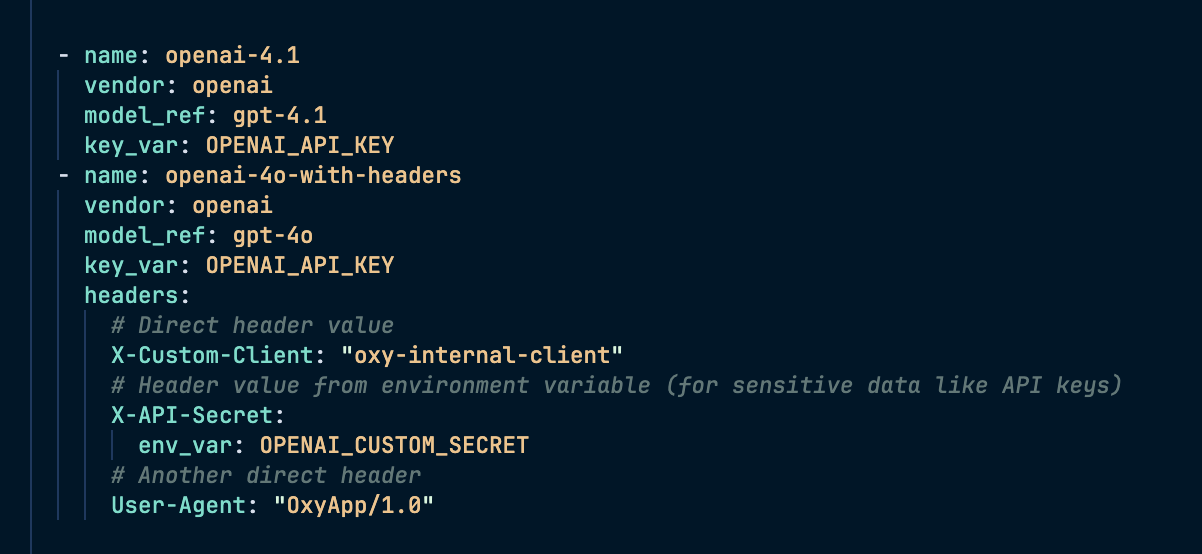
Enhanced PostgreSQL compatibility with type system fixes, corrected API key error messaging, improved workflow replay performance through optimized state tracking, resolved potential deadlock scenarios with better edge case handling, and updated dependencies to latest versions for improved security and performance
Debug and analyze workflow executions with comprehensive replay capabilities:
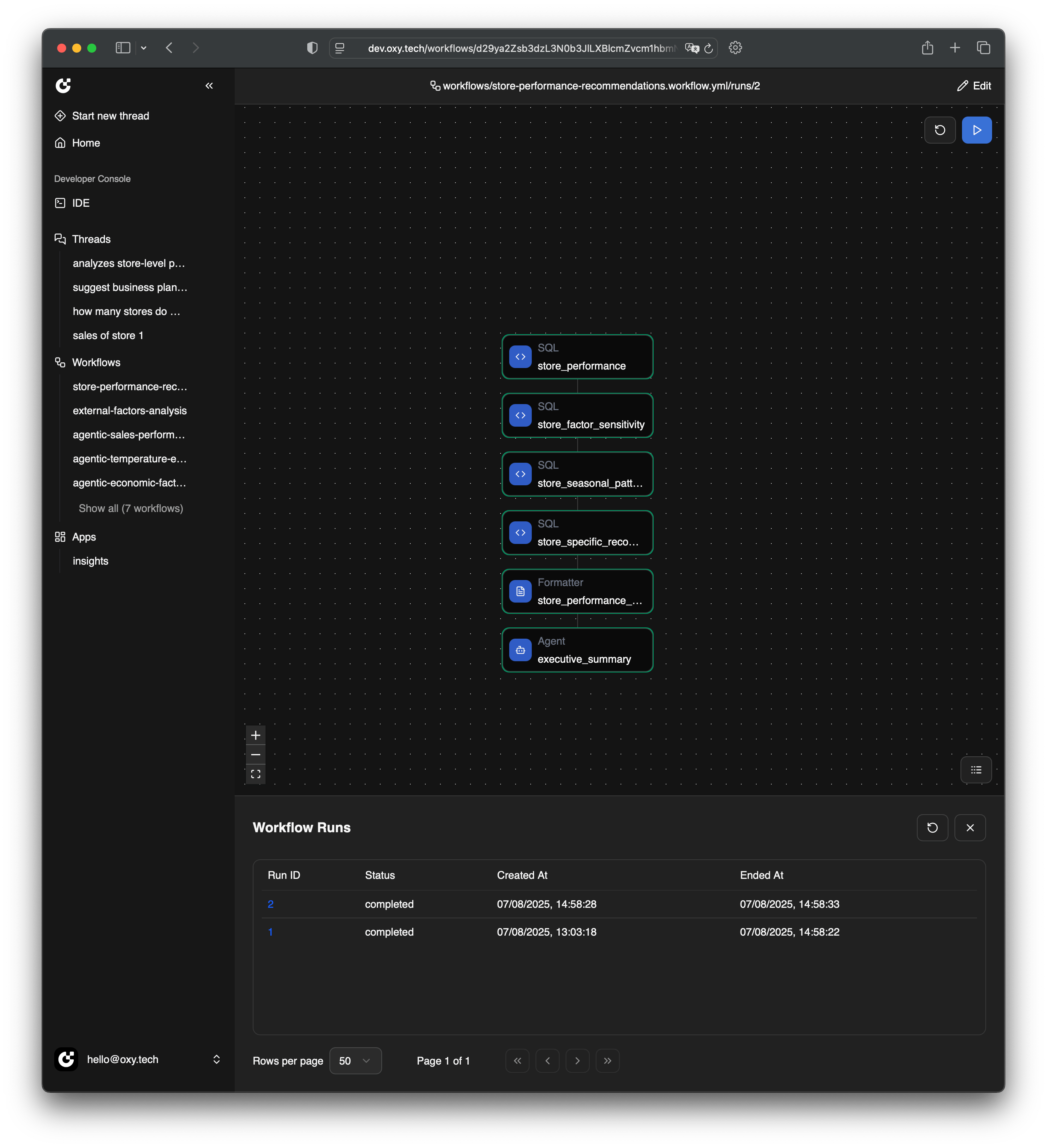
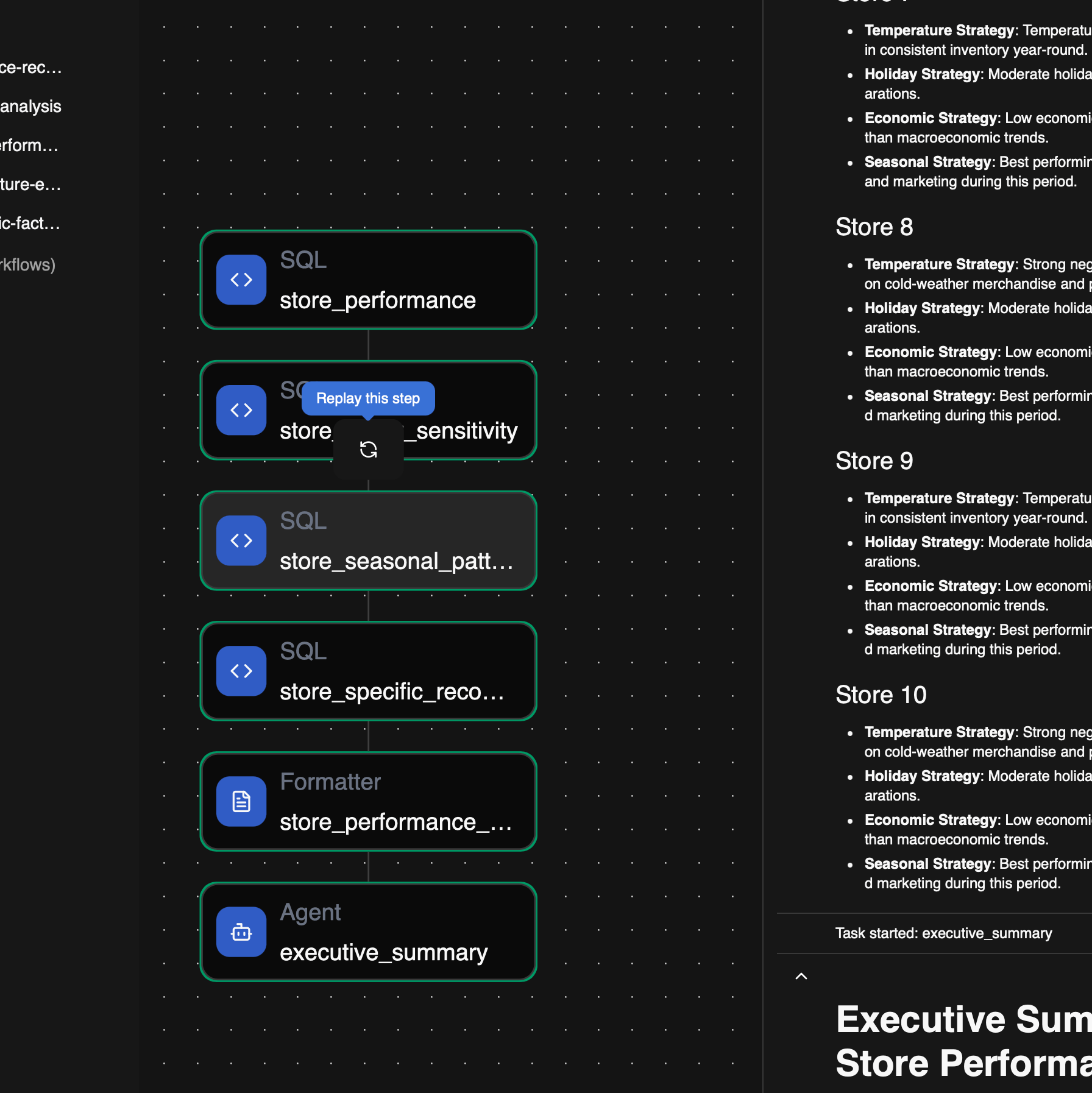
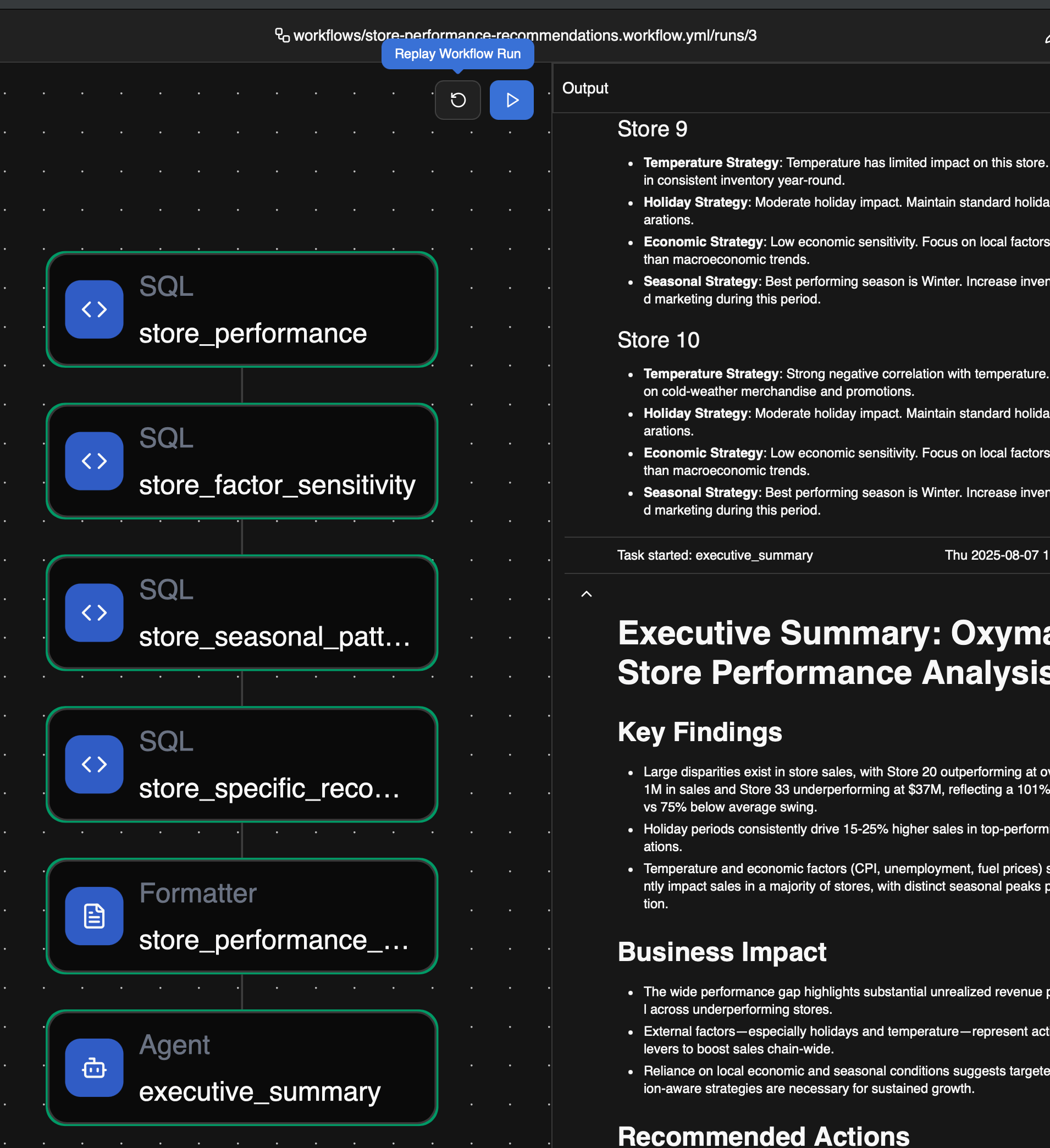
Improved workflow diagram experience for better understanding:
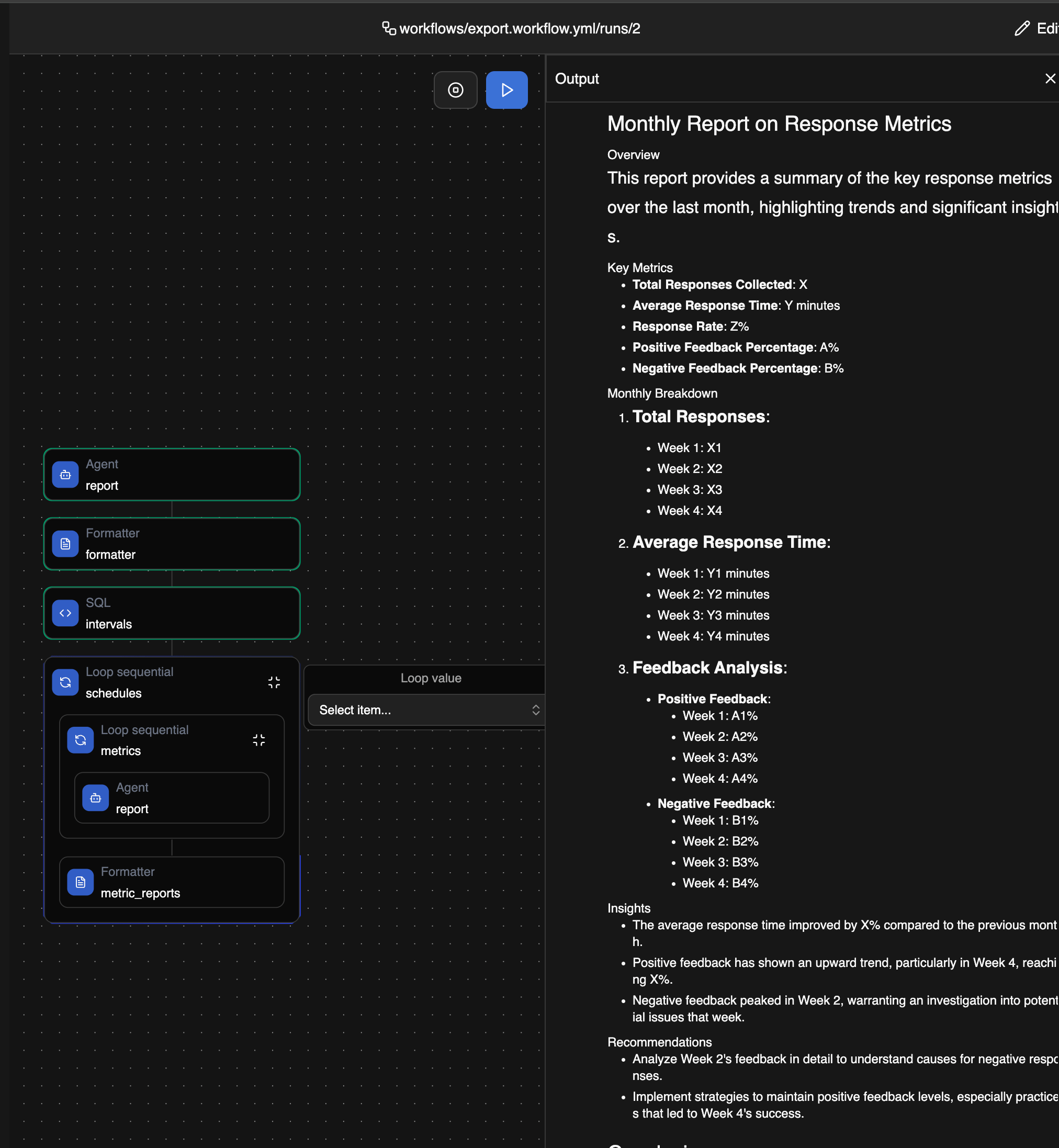
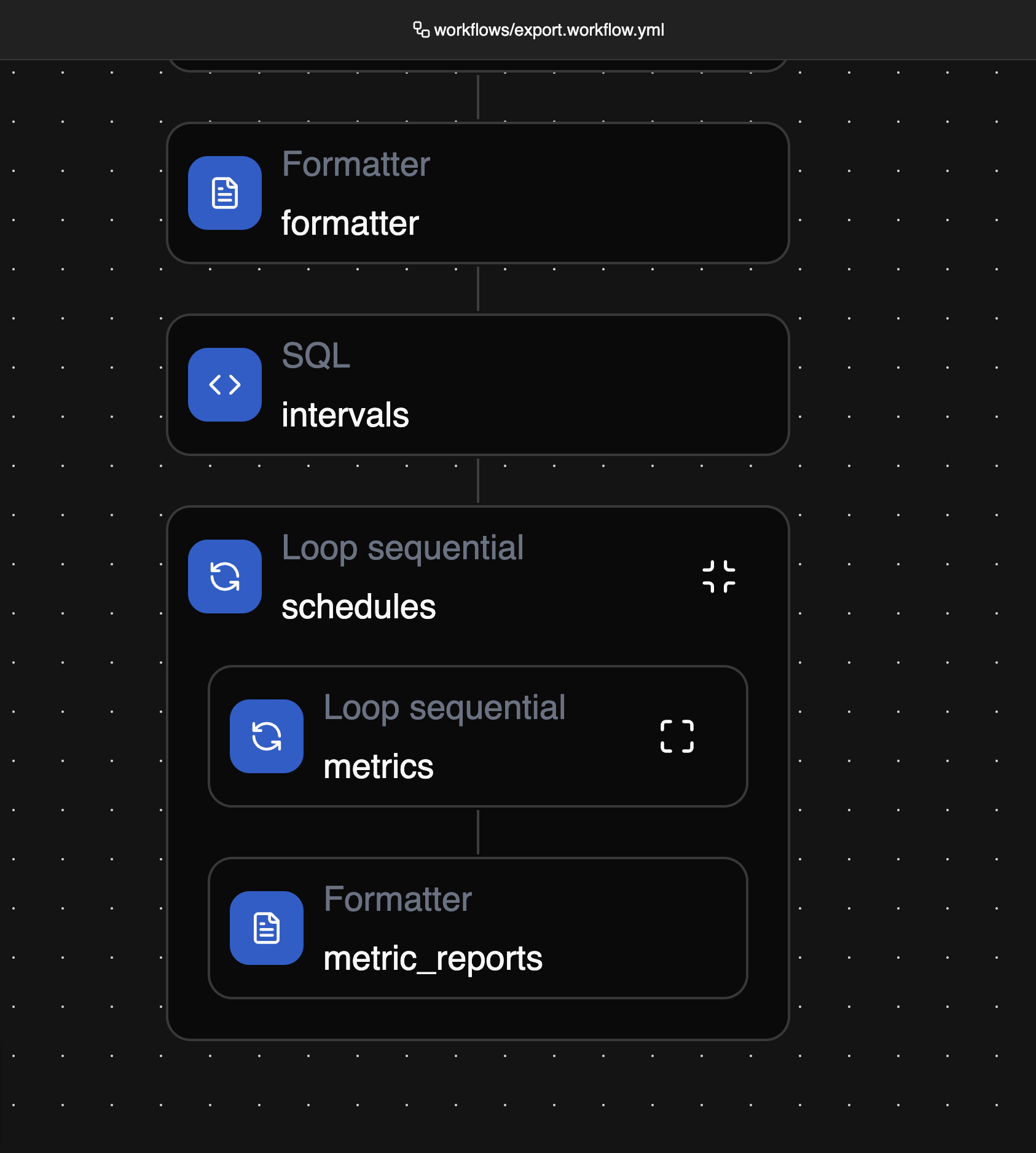
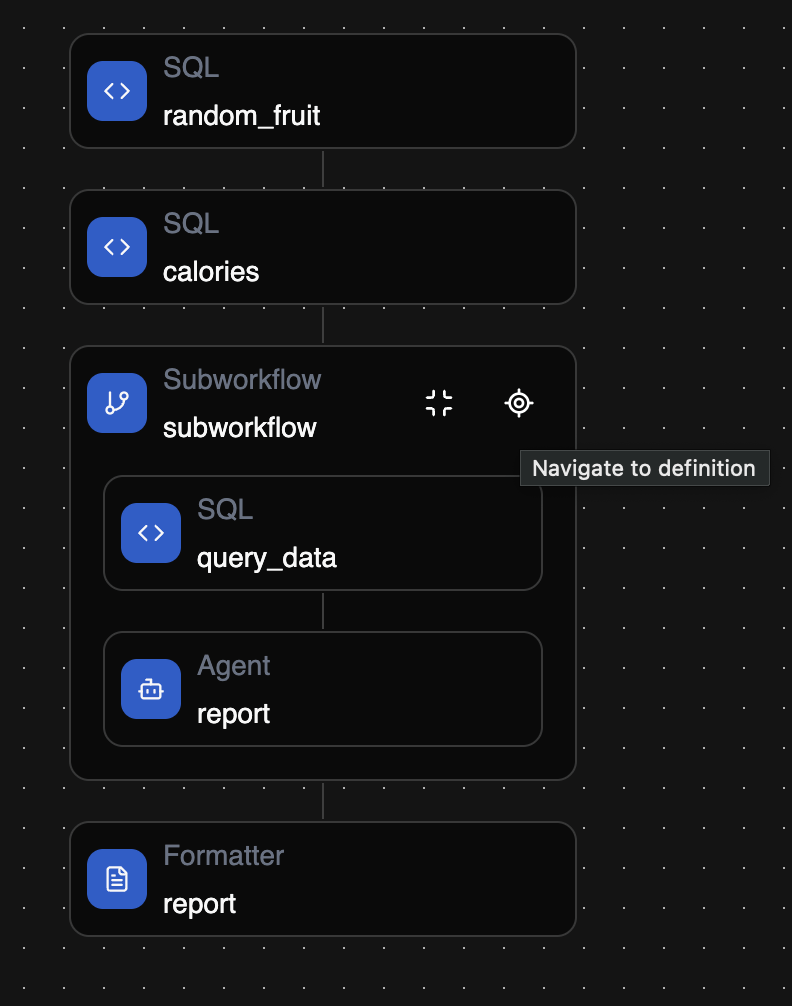
Refactored event handling system for better reliability and debugging:
These changes happen behind the scene to keep workflow execution stable and reliable
This release focuses on enhancing user experience and system reliability through targeted optimizations:
These enhancements continue our commitment to delivering a robust and intuitive product experience
Improved settings experience with consolidated management:
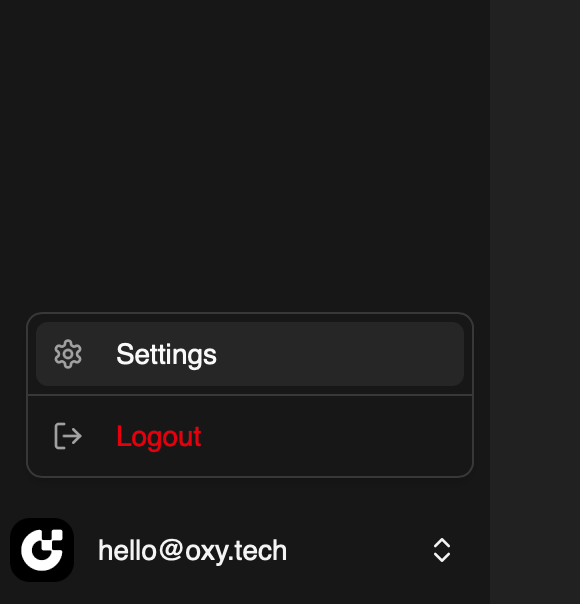
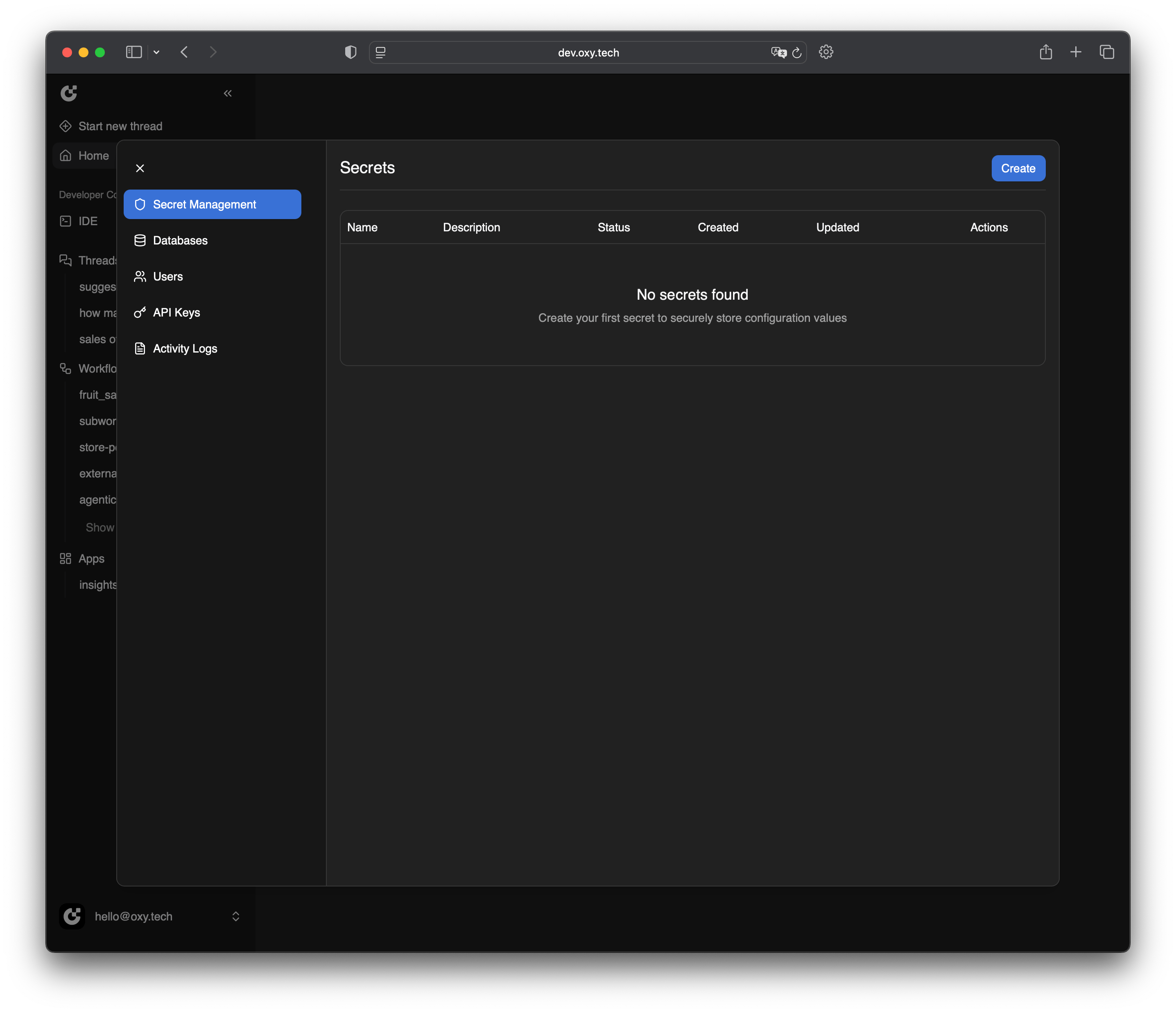
New data management utility for cleaning ephemeral data:
oxy syncoxy buildoxy clean from command line for automated cleanup workflowsReset your environment to a clean state when needed
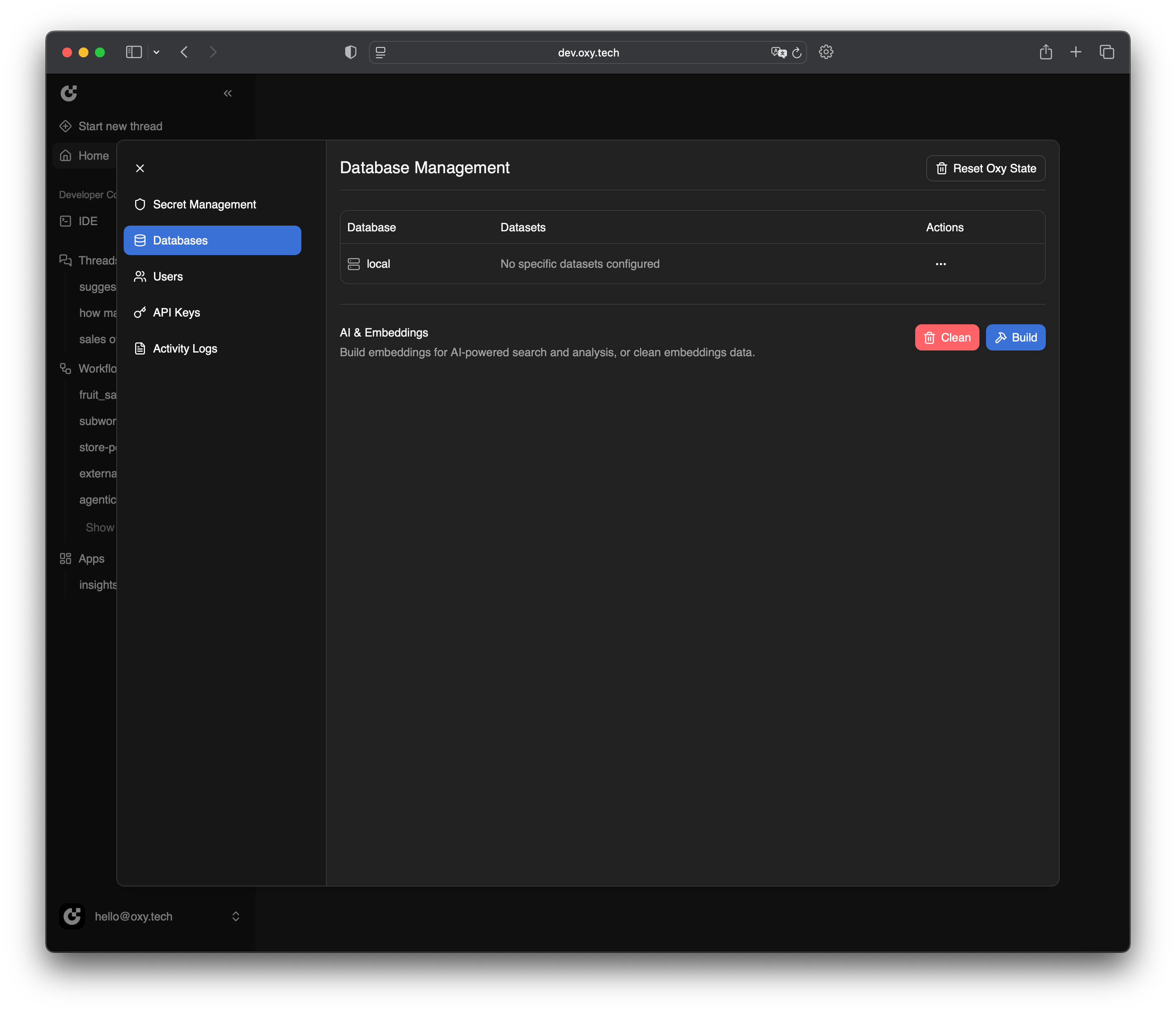

Complete audit trail of all agent interactions in a comprehensive table view:
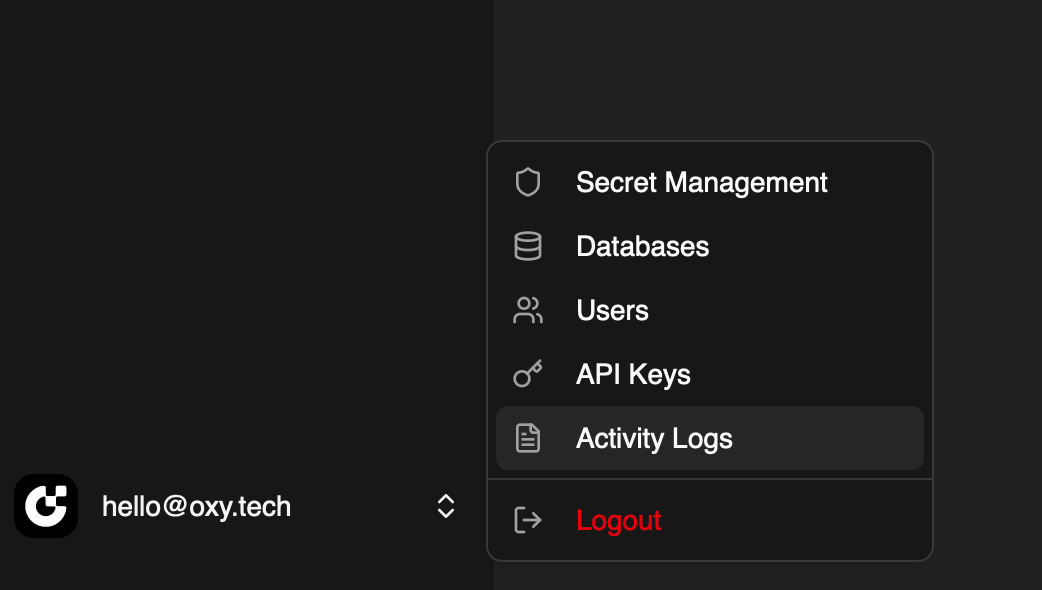
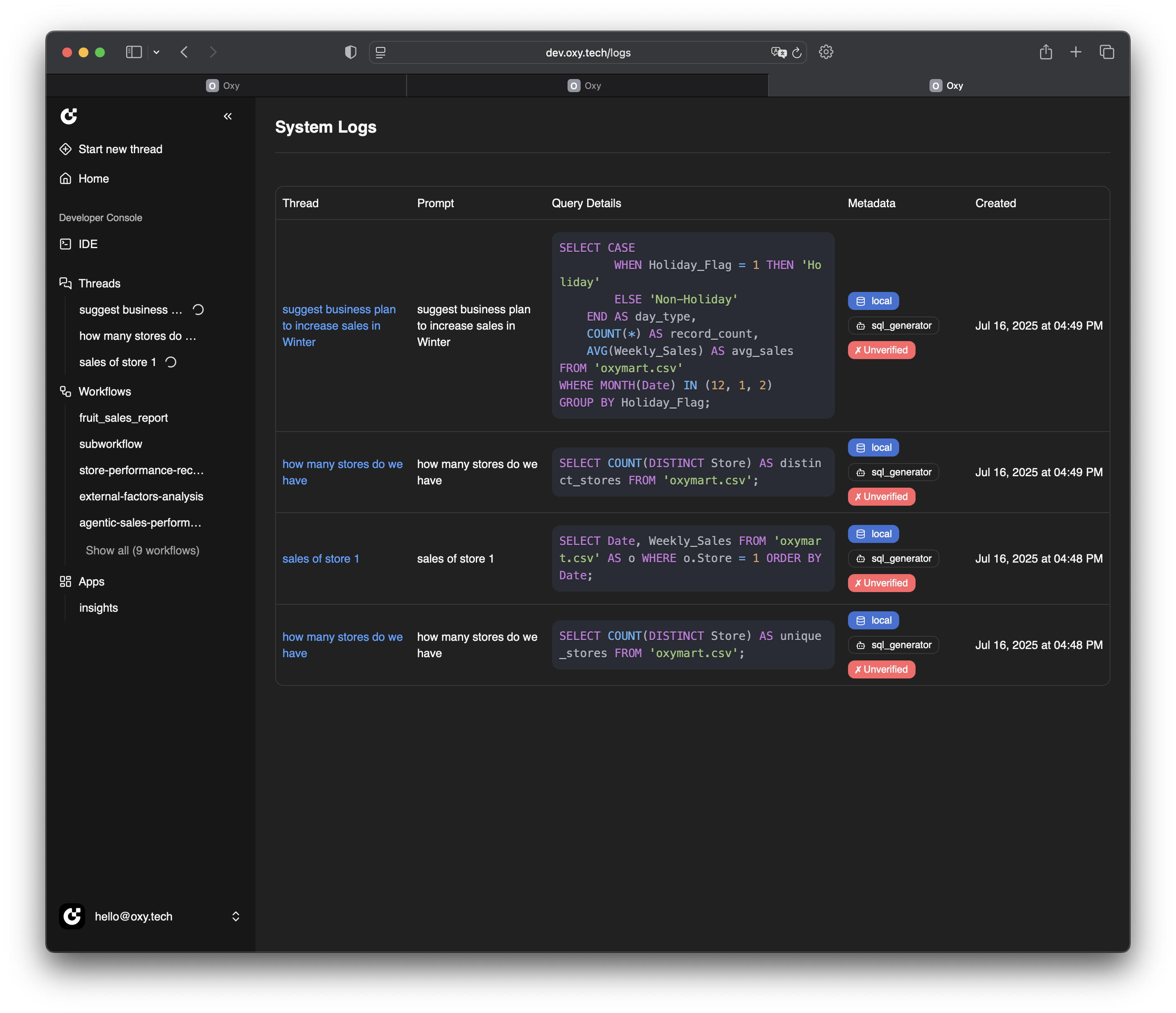
Note: This is an early preview feature and may encounter some edge cases during initial use
Improve workflow and agent retrieval accuracy by specifying include and exclude keys in the retrieval configuration:
retrieval.include - Prompts that should trigger this workflow or agentretrieval.exclude - Prompts that should not trigger this workflow or agent. For example, if prompting "Create annual user report" is erroneously triggering the active_users workflow, add it as an entry under the exclude keyBelow is an example of how retrieval.include and retrieval.exclude can be utilized:
name: active_users
description: |
This workflow generates a report on active users.
retrieval:
include:
- "Create monthly report for active users"
exclude:
- "Create annual user report"
variables:
month: "{{ dimensions.month }}"
platform: "{{ dimensions.platform }}"
tasks:
- name: query_data
type: execute_sql
database: local
sql_query: |
SELECT * FROM monthly_active_user_by_platform.csv
WHERE month = '{{ month }}' AND platform = '{{ platform }}'
- name: report
type: agent
agent_ref: agents/local.agent.yml
prompt: |
Generate a report on active users based on the provided data.
The data includes user activity and their last login date.
[BEGIN DATA]
{{ query_data }}
[END DATA]
- Then generate a concise report using the following template:
Total active users: <total_active_users>
Active users by organization: <active_users_by_organization>
Analysis: <compare the activity levels of different organizations>
- Analysis should focus on the activity levels without further judgment.
Significantly improved preview experience for agent development:
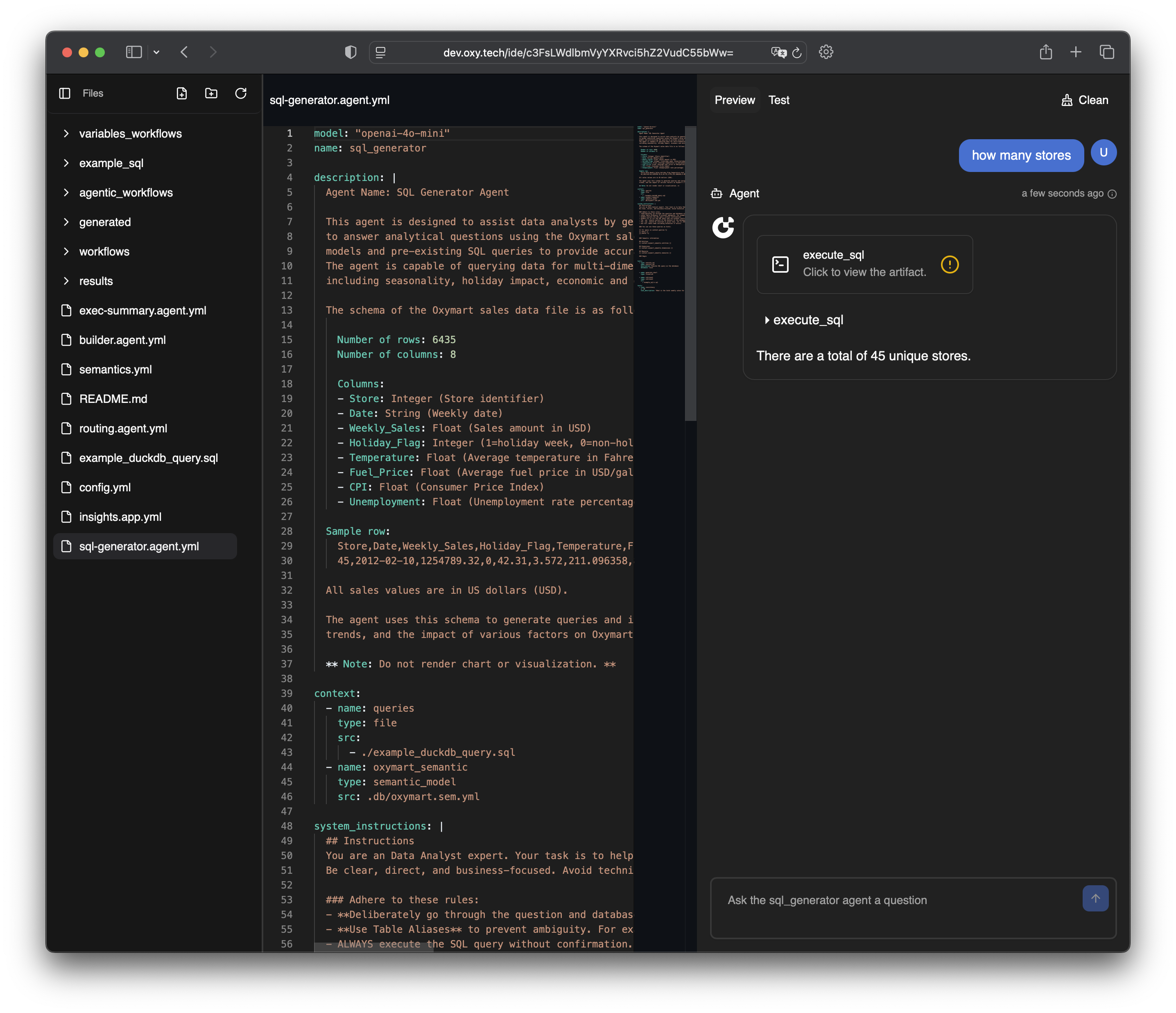
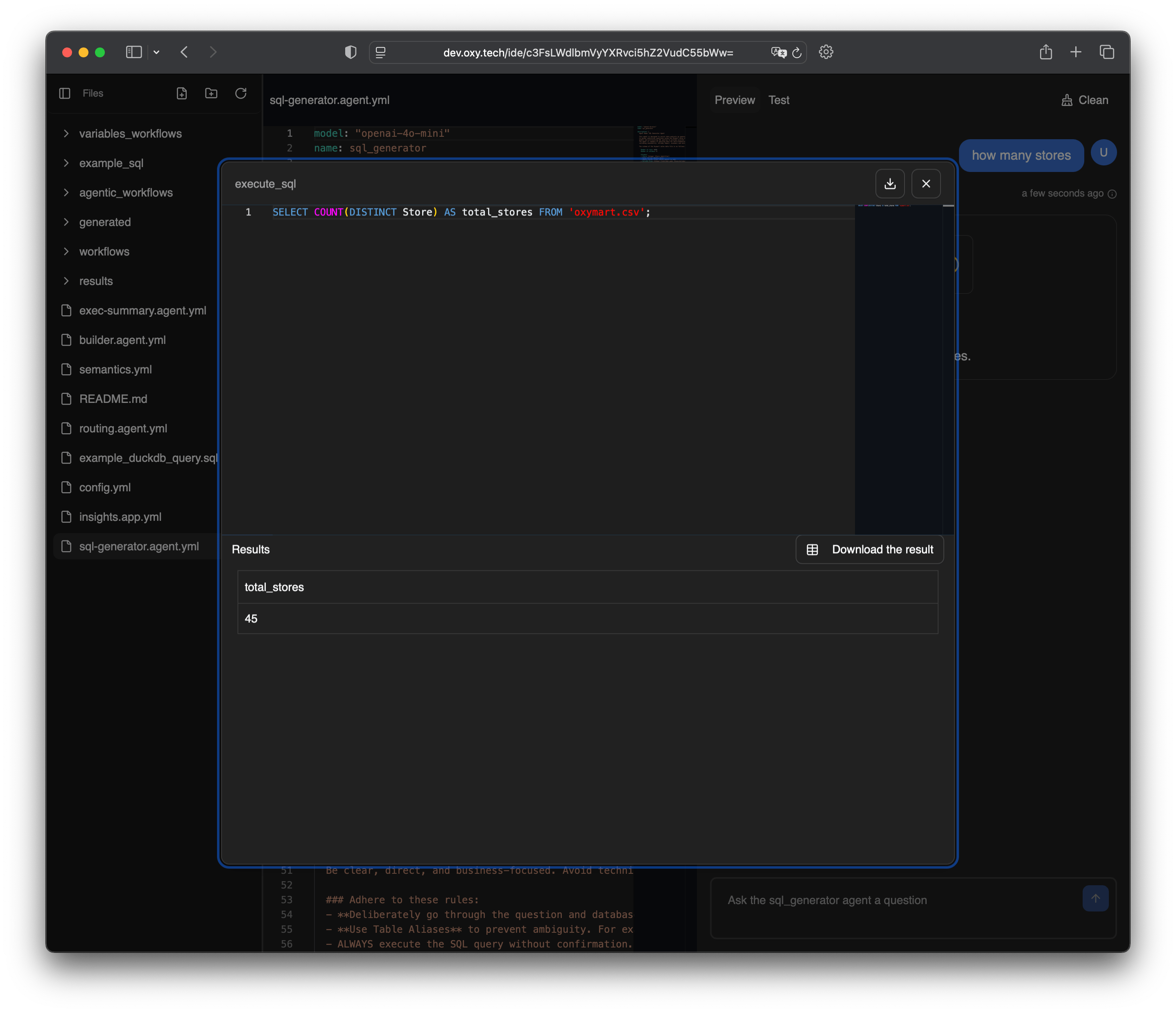
Improved error handling when agents fail to answer questions, enhanced logging for better diagnostics, and minor footer UI updates for better visibility
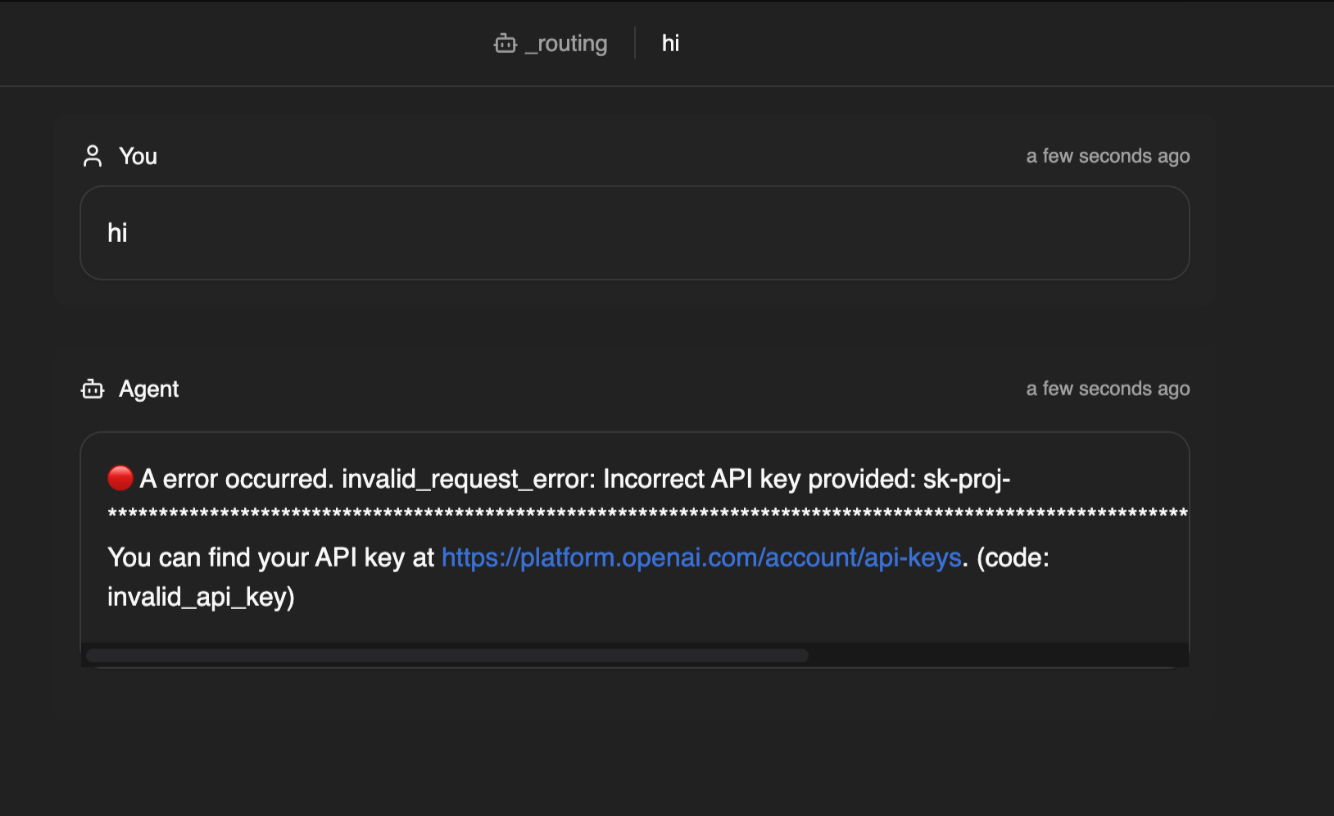
Launch Oxy from anywhere without requiring an existing project folder:
oxy serve --readonly from any directoryNote: This is an early preview feature and may encounter some edge cases during initial use. Starting the server without --readonly will not show any changes in behavior for now


Secure handling of sensitive configuration and credentials:


Improved control over AI conversations:

Fixed minor type conversion issues in the unified semantic layer and updated dependencies for improved stability
Introducing semantics.yml - a comprehensive approach to data modeling that unifies all entity definitions across your entire Oxy deployment:
oxy sync to bootstrap unified semantic definitions from all your models, then customize as needed{{ dimensions.month }}semantics.yml for consistency across your deploymentNote: This is an early release feature and may encounter some edge cases during initial use.
Example of semantics.yml, which you can find in our public source code



Complete user administration system with role-based access control:
config.yml with simple email list/users endpointExample config.yml, which you can find in our public source code
authentication:
basic:
smtp_user: example@gmail.com
smtp_password_var: AUTH_SMTP_PASSWORD
smtp_server: smtp.gmail.com
smtp_port: 587
admins:
- example1@oxy.tech
- example2@oxy.techUsers can then be managed at <your-deployment-url>/users

Database management and API Keys management UIs are slightly reworked to follow a unified design language with consistent styling and interaction patterns


Conversations with agents now persist seamlessly across page navigation and reloads, with improved first message flow for smoother user experience

Added more endpoints to the API reference. Visit <your-deployment-url>/apidoc for a closer look at our latest Openapi documentation

Updated to Rust 1.88 (latest version), resolved ClickHouse stability issues, and improved artifact panel scrolling behavior. Enhanced dependency management for better overall platform reliability
We've implemented authentication with multiple new options to fit your workflow:
For more information, please visit our Authentication document


Oxy now allows programmatic access for integrations and automation using API keys - perfect for headless operations and third-party integrations
An API doc is available at your-deployment-url/apidoc while the API key is available under your-deployment-url/api-keys


Our AI agents are now more powerful and reliable:
To set up routing agents, please visit our routing agents documentation
Below is a simple example of a routing agent
model: "openai-4o-mini"
type: routing
routes:
- "agents/sql-analyst.agent.yml"
- "workflows/data-processing.workflow.yml"
- "queries/reports.sql"

Streamline your data workflows with powerful new sync capabilities:
From the UI, you can start viewing databases and perform operation like sync and build similarly to the CLI commands at <your-deployment-url>/databases


Enhanced IDE and file management capabilities:


Significantly improved conversation handling:





Enhanced platform stability with improved data fetching, strengthened database connections, and better chat streaming architecture. We also implemented comprehensive logging and error handling improvements behind the scene to gracefully handle edge cases and large data loading scenarios
Latest long term support version of Node and Rust is used with the most sensibly updated sets of dependencies to ensure backward compatibility and security
There is also a new Docker Release for easy access to the latest container images.
This release adds native support for data applications. It includes an open, declarative framework for building data applications, and an IDE for Oxy to code these applications with the given framework. We also added dark mode to make our product experience easier on the eyes.


This release includes native visualization for the Oxy GUI experience. Further, agents can now natively execute workflows. Google BigQuery support has been added as a native data source.

This release includes a built-in MCP-compliant server, enabling seamless context management and integration with clients that support the MCP specification. Ideal for LLM orchestration and centralized context management.MCP server supports two transport options: server sent events and stdio
Please visit our documentation for detailed instruction: https://docs.oxy.tech/learn-about-oxy/mcp-usage#setting-up-the-mcp-server

We’ve launched oxy serve to make it easier for you to interact with your agents. Now you can:
Try this new feature by running oxy serve from your command line.